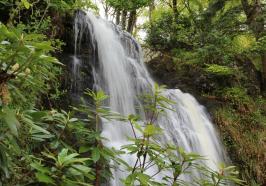Energy
A variety of energy sources and industries can be studied from Derwentwater Independent Hostel, including our very own small-scale hydro-electric plant.
The Cumbrian energy industries are most closely associated with the west coast, from the former coal mines at Whitehaven to the modern nuclear reprocessing site at Seascale. We can explore these from lots of angles: science, economics, politics, poetry, and art. From John Dalton’s A Descriptive Poem, Addressed to Two Ladies, at Their Return from Viewing the Mines near Whitehaven (1755) and Norman Nicholson’s Windscale (1957), to the recent media coverage of nuclear waste storage, there are numerous ways to study and interpret the energy landscapes and heritage of Cumbria.
On a clear day, you can see the eight turbines of the Bothel wind farm from the hostel terrace. However, the biggest Cumbrian wind farms are off-shore, in the Barrow area.
All of these energy sources are surrounded by vigorous debates and changing policies. Students can use different research methods to engage with these issues, and we can do a variety of reading, writing, speaking and listening tasks based on these topics.
The Cumbria Action for Sustainability www.cafs.org.uk promotes the use and development of renewable energy sources. At the most local level, SusKes (Keswick-based Sustainability group) encourages environmentally-friendly practices. There are several examples of businesses and households where energy is supplied from renewable sources: Whin Rigg in Portinscale has a thermodynamic panel and 14 solar panels on the roof, while YHA Eskdale has a wood-fuelled biomass heating system. Allerdale (our district) holds some Green Homes Open Doors Days, allowing people to see and learn about these sustainability actions.
Students will be able to study energy at a variety of scales, placing local case studies in the context of national and global environments, policies, and technologies. For instance, we will look at the most recent United Nations environmental and economic conferences and relate them to the energy issues and policies that we can see in Cumbria.
We can also look at energy very broadly, from studies of photosynthesis to the energy systems in humans: a bit of fell walking and our hearty hostel meals are the perfect way to explore these topics!
-
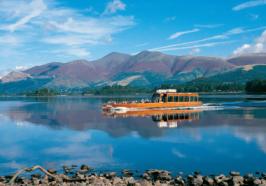 Group trips on the Keswick Launch
Group trips on the Keswick Launch -
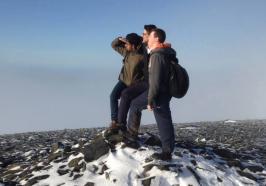 Birmingham University Wilderness Medicine Students
Birmingham University Wilderness Medicine Students -
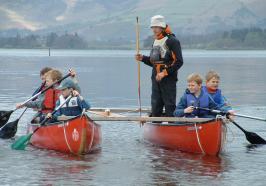 Working together on Derwent Water
Working together on Derwent Water -
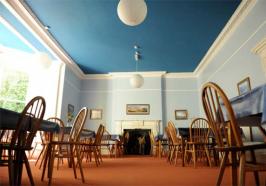 Dining room
Dining room -
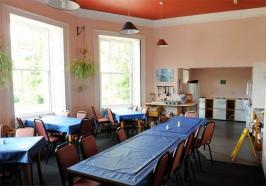 Self catering kitchen
Self catering kitchen -
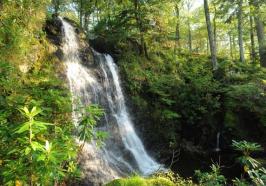 Barrow Cascade: the waterfall in our grounds
Barrow Cascade: the waterfall in our grounds -
-
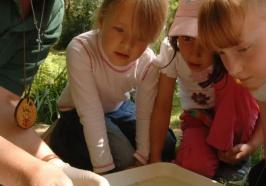 Classrooms in the forest
Classrooms in the forest -
 Pond-dipping
Pond-dipping -
Working together
-
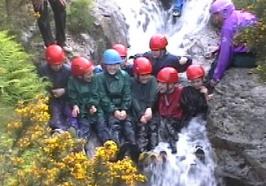 Gorge scrambling
Gorge scrambling -
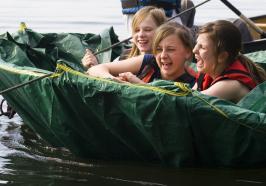 Raft building (and floating!)
Raft building (and floating!) -
.jpg) Be a Viking for a day!
Be a Viking for a day! -
 Indoor climbing
Indoor climbing -
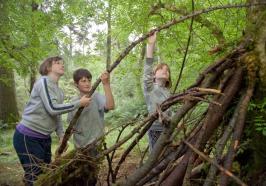 Shelter-building
Shelter-building


